Why Your Kids Struggle With Responsibility—and How to Help

It’s a moment every parent knows well. You walk into the kitchen and see the empty cereal bowl left on the table, milk dripping down the side. You call out, “Did you forget something?” only to hear a distracted “Oh yeah, sorry!” from the other room. Again.
It’s easy in those moments to focus on the surface. The task didn’t get done. The mess was left behind. The child forgot. But beneath those recurring patterns lies something deeper—and far more important. Responsibility isn’t just about getting things done. It’s about who a child is becoming. And the best kind of responsibility doesn’t come from reminders, rewards, or threats. It comes from the heart.
In our culture, responsibility is often treated like a checklist: make your bed, do your homework, take out the trash. Those things matter, of course. But if we focus solely on whether the job gets done, we may miss the long-term opportunity: training a child’s heart to take initiative, to care, and to follow through—even when no one is watching.
That’s why at the National Center for Biblical Parenting, we emphasize what we call a “heart-based” approach. Because real responsibility starts with an internal shift, not just an external result.
Building Obligation as Internal Motivation
One of the key tools God built into every child’s heart is the conscience. In Acts 23:1, Paul says, “I have fulfilled my duty to God in all good conscience to this day.” He wasn’t just doing what others expected. He was living from the inside out. That’s the kind of responsibility we want to cultivate in our children—not compliance out of fear or pressure, but a growing sense of inner duty that reflects maturity. That inner sense of obligation is the heart quality that builds responsibility.
As parents, one of our greatest challenges is knowing how to move our kids from reminded behavior to owned behavior. And the truth is, reminders aren’t always helpful. In fact, when we repeat ourselves over and over, we may unintentionally train our children not to listen until the fifth time we speak.
Instead, we need a new strategy—one that shifts the focus from task management to heart training. Here are some ideas you can do that change how you parent in a way that builds responsibility.
Understand and Tighten Your Action Point
One of the ways we do this is by tightening the action point. If a child knows that “clean your room” means “eventually, after you’ve been reminded several times,” they learn to delay. But if they know that instructions require action right away, they start to listen differently. They take the instruction more seriously, and it creates an internal tension—I need to do this now—that is part of building a healthy conscience. Many parents use anger as their action point. But if you only say it once and then take action, children learn to respond more quickly…and it further helps them to build an inner sense of obligation.
Point Kids to Cues
Another tool we teach is the use of cues. Too often, parents are the cue: “The trash is full, take it out.” “The dog is whining, feed her.” “It’s 8:00, start your homework.” But part of raising responsible kids is helping them notice life’s built-in signals and act on them without being told.
Instead of being the constant reminder, we can say, “I hear the dog whining?” or “What day is it?” as a reminder to think “It’s Tuesday and that’s trash day.” This kind of coaching strengthens a child’s awareness and invites them into the process of thinking and responding.
Choose Your Words Carefully
We also encourage parents to use language that activates the heart. Rather than saying, “I need you to take out the recycling,” which places the emphasis on the parent’s needs, try saying, “You need to take out the recycling.” It’s a subtle shift, but it puts the responsibility where it belongs—on the child’s shoulders. Over time, it begins to mirror the language of the conscience: I need to…
Sometimes parents feel uncomfortable with this approach at first, but when they try it, they are often surprised at the result. Mimicking the conscience is a good training tool for a child and the words “You need to…” have a strong effect.
It Takes Practice
Perhaps the most powerful part of teaching responsibility is the idea of practice zones. That messy kitchen, the forgotten backpack, the undone homework—these aren’t just failures. They’re training opportunities. Each time a child is called to follow through, they get another chance to build character. It’s the repetition that strengthens the skill. Responsibility grows in layers, through daily experiences and intentional parenting, not in one dramatic breakthrough.
And let’s be honest—this kind of training takes patience. It’s easier in the short run to do it ourselves, to nag, or to let it slide. But over time, we can either build habits of independence or habits of dependency. The child who learns to manage their world with confidence becomes the adult who can handle life with integrity.
The goal isn’t perfection. It’s progress. And sometimes, progress looks like a child who stops halfway up the stairs, remembers the cup they left on the table, and walks back down to put it in the sink. That moment is gold. It means the heart is starting to engage.
Watch Kids Begin to Change
If you’re feeling overwhelmed, don’t be discouraged. You don’t need to overhaul everything at once. Start by choosing one area where you see a lack of follow-through—maybe morning routines, homework, or family chores. Then, pick one strategy: tighten the action point, use clearer language, or build awareness through cues. Begin to use that situation as a practice zone, and commit to consistency rather than perfection.
Over time, you’ll see a shift—not just in behavior, but in identity. Your child will start to view themselves as someone who follows through, who contributes, who takes ownership. And that’s not just good parenting. That’s discipleship.
Responsibility is a discipleship issue because it shapes how our children respond to God. A child who learns to do what’s right even when no one is looking is more likely to respond to the Holy Spirit’s conviction and follow through on what God asks of them. That’s why this work is so much more than getting the trash out or finishing a worksheet. It’s about forming a heart that’s attentive, responsive, and faithful.
If you want more practical tools, encouragement, and insight into how to raise responsible kids without nagging, I invite you to explore our course: How a Heart-Based Approach Changes Everything. You’ll discover a complete framework for reaching your child’s heart, and you’ll walk away with real solutions that bring hope and progress into your home. Responsibility isn’t just about getting the job done. It’s about raising children who know how to follow through—not because you said so, but because their hearts are learning to say, “This is right, and I will do it.”
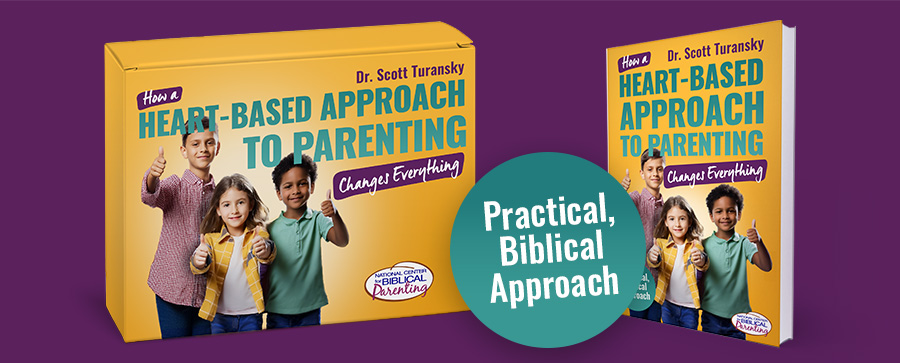

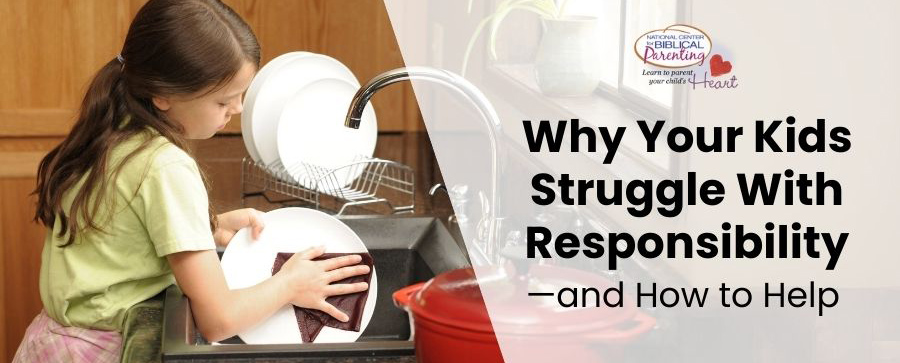
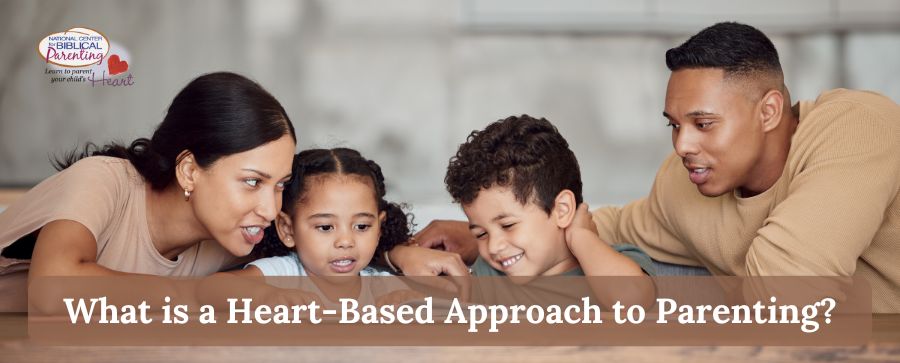

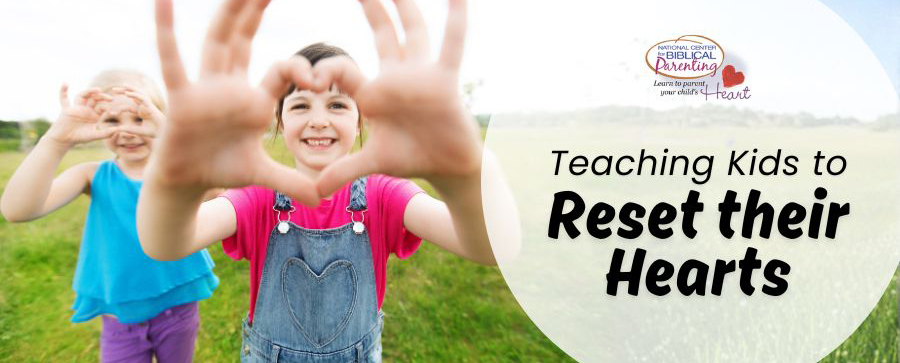


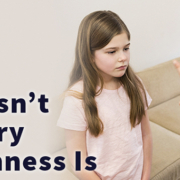
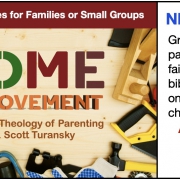
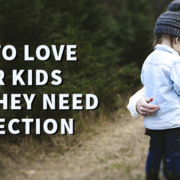
Leave a Reply
Want to join the discussion?Feel free to contribute!